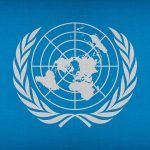Eight years on from the violent, illegal annexation of the Autonomous Republic of Crimea and the city of Sevastopol by the Russian Federation, the European Union remains steadfast in its commitment to Ukraine’s sovereignty and territorial integrity within its internationally recognised borders. Further violation of Ukraine’s sovereignty and territorial integrity have now taken place with Russia’s recent unprovoked military attack against Ukraine and its decision to recognise the non-government controlled areas of Donetsk and Luhansk oblasts of Ukraine as independent entities.
The European Union reiterates that it does not recognise and continues to condemn the illegal annexation of Crimea as a violation of international law. It remains a direct challenge to international security, with grave implications for the international legal order that protects the territorial integrity, unity and sovereignty of all States.
The European Union remains committed to fully implementing its non-recognition policy, including through restrictive measures and cooperation in international fora. The European Union calls again on UN Member States to consider similar non-recognition measures in line with the UN General Assembly Resolution 68/262 of 27 March 2014. The European Union does not and will not recognise the holding of elections and referenda by the Russian Federation in the Crimean peninsula.
The increasing militarisation of the peninsula by the Russian Federation, including multiple military exercises and the construction of warships, continues to have a negative impact on the security situation in the Black Sea region. In violation of international humanitarian law, Russia has imposed citizenship and conscription into its armed forces on Crimean residents. In accordance with UN General Assembly Resolution 76/70 of 9 December 2021, the European Union recalls the negative effects of the illegal annexation on regional stability, as shown by the unjustified use of military force by Russia against Ukraine on 25 November 2018.
Furthermore, the Russian Federation must stop changing the demographic structure on the peninsula by the resettlement of its own civilian population to the peninsula and by persecution of Crimean Tatars and ethnic Ukrainians.
The European Union condemns the construction of the Kerch Bridge and the opening of a railway section without Ukraine’s consent. These steps constitute further attempts to forcibly integrate the illegally annexed peninsula into Russia, and a further violation of Ukraine’s sovereignty and territorial integrity. The EU expects Russia to ensure unhindered and free passage of all ships through the Kerch Strait to and from the Azov Sea, in accordance with international law. The ongoing illegal restrictions to such passage have negative economic consequences for Ukraine’s ports in the Azov Sea, as well as for the region as a whole.
The EU does not recognise other attempts by the Russian Federation to forcibly integrate the illegally annexed peninsula into Russia. This includes the Russian presidential decree on land ban ownership for non-Russian citizens, as well as the holding of all Russian census on the peninsula.
Since the illegal annexation by the Russian Federation, the human rights situation in the Crimean peninsula has significantly deteriorated. Having in mind the landmark decision of the European Court of Human Rights of 14 January 2021, the European Union calls for Russia’s full compliance with international humanitarian law, international human rights standards, and relevant UN General Assembly Resolutions, including 76/179 of 16 December 2021. Residents of the peninsula face systematic restrictions of their fundamental freedoms, such as the freedoms of expression, religion or belief and association, and the right to peaceful assembly. Journalists, human rights defenders and defence lawyers face interference and intimidation in their work. The Crimean Tatars in particular continue to be unacceptably persecuted, pressured and have their rights gravely violated, especially through arbitrary arrests and detentions. All ethnic and religious communities in the peninsula must be ensured the possibility to maintain and develop their culture, language, education, identity and cultural heritage traditions, which are currently threatened by the illegal annexation. Destructive actions against the peninsula’s cultural heritage, such as archaeological treasures, artworks, museums or historical sites, which continue unabated, must stop.
In accordance with UN General Assembly Resolution 76/179 of 16 December 2021, it is crucial that regional and international human rights monitoring mechanisms as well as non-governmental human rights organisations have unimpeded access to Crimea and Sevastopol. All pending cases of human rights violations and abuses, such as enforced disappearances, torture and killings, violence, politically motivated prosecutions, discrimination and harassment must be thoroughly investigated. The European Union does not recognise the enforcement of Russian legislation in Crimea and the city of Sevastopol and expects all illegally detained to be released without delay. We condemn the recent politically motivated mass detentions of Crimean Tatars. All those detained in the Crimean peninsula and sentenced in breach of international law, including Nariman Dzhelyal, Emir-Usein Kuku and his five co-defendants, Oleh Prykhodko, Halyna Dovhopola, Enver Omerov, Riza Omerov and Ayder Dzhapparov, must be immediately released. The ban on the activities of the Mejlis, a self-governing body of the Crimean Tatars, must be reversed. Russia must also take measures to improve the environmental situation, which has considerably worsened since the illegal annexation.
The EU welcomes and supports diplomatic efforts aimed at restoring Ukraine’s sovereignty and territorial integrity within its internationally recognised borders. The European Union will continue to work for a peaceful end of Russia’s illegal annexation of the peninsula, as reiterated in the joint declaration of the first summit of the International Crimea Platform held on 23 August 2021. The EU will continue working towards the implementation of the Joint Declaration.
The European Union condemns in the strongest possible terms the unprovoked invasion of Ukraine by armed forces of the Russian Federation. We also condemn the involvement of Belarus in this aggression against Ukraine and call on it to abide by its international obligations.
Russia’s military attack against Ukraine – an independent and sovereign State – is a flagrant violation of international law and the core principles on which the international rules-based order is built.
The EU together with transatlantic and like-minded partners have been united in making unprecedented efforts to achieve a diplomatic solution to the security crisis caused by Russia. Russia has not reciprocated these efforts and instead opted unilaterally for a grave and premeditated escalation.
We demand President Putin to cease Russian military operations immediately and unconditionally withdraw all forces and military equipment from the entire territory of Ukraine. Russia bears full responsibility for this act of aggression and all the destruction and loss of life it will cause. It will be held accountable for its actions.
The EU has made clear from the outset and at the highest political level that any further military aggression against Ukraine will have massive consequences and severe costs, coordinated fully with our transatlantic and like-minded partners.
Furthermore, the EU strongly condemns the decision by President Putin to recognise the non-government controlled areas of Donetsk and Luhansk oblasts of Ukraine as independent entities and the ensuing decision to send Russian troops into these areas. This illegal act further undermines Ukraine’s sovereignty and independence and is a severe breach of international law and international agreements, including the UN Charter, Helsinki Final Act, Paris Charter and Budapest Memorandum.
As a signatory of the Minsk agreements, Russia has a clear and direct responsibility to work to find a peaceful settlement of the conflict in line with these principles. With the decision to recognise the non-government controlled region of eastern Ukraine as “independent states”, Russia is clearly violating the Minsk agreements, which stipulate the full return of these areas to the control of the Ukrainian government.
We urge Russia, as a party to the conflict, to reverse the recognition, uphold its commitments, abide by international law and return to the discussions within the Normandy format and the Trilateral Contact Group.
This Declaration is issued on the 8th anniversary of the illegal annexation of Crimea and Sevastopol by the Russian Federation, commemorated by Ukraine on 26 February 2022.






Leave a Reply